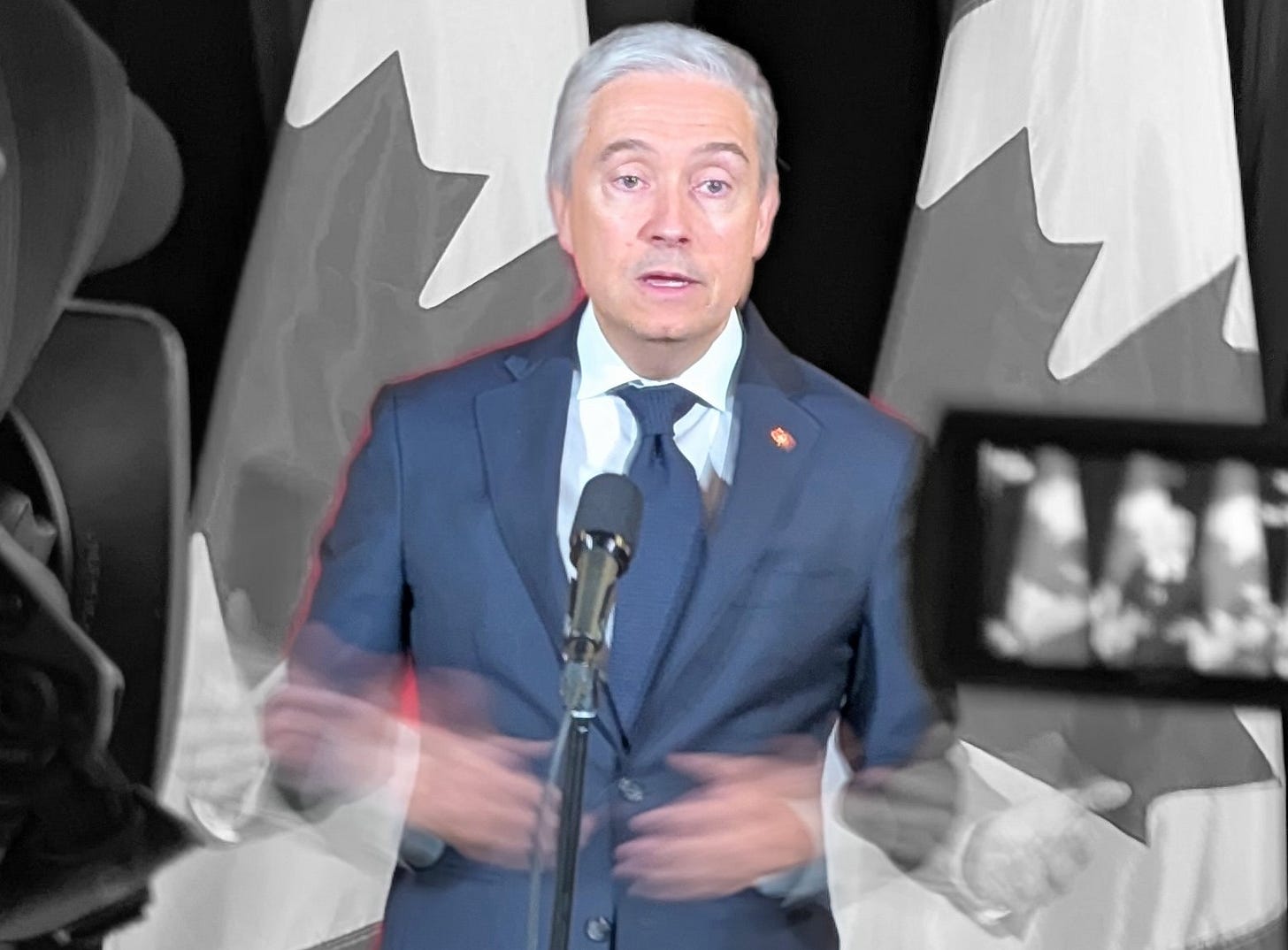Attached please find my 19-point list
Sure, a constant comms obsession is unwise. But so is flushing any conceivable effort to explain yourself out the airlock.
There was a shambolic generosity to the way a few cabinet ministers set out to explain themselves to reporters last week while their colleagues were sequestered inside the cabinet retreat planning forum.
Mark Carney spoke to reporters on Wednesday and made a substantial program announcement on Friday. Thursday the prime minister did not speak to reporters, so other ministers did. On that day, François-Philippe Champagne took reporters’ questions for 21 minutes in the morning, and Mélanie Joly and Dominic LeBlanc for 29 minutes in the afternoon. That’s decent time with senior cabinet ministers. Like their boss, the three put real effort into answering some of the questions.
Top marks to Mélanie Joly, which is not a sentence fragment I write every week, but the industry minister was detailed and patient as she described how pivoting from a steel industry built mostly for Detroit must now be retooled for other domestic purposes.
Joly also put effort into calming a traveling Ottawa press contingent grown feral through neglect and poor feeding, dating back long before the current moment. My colleagues have grown so used, over many years, to two- or three-question scrums that they routinely shout over one another in hopes of getting one of the very few questions a pol might deign to answer. “You’ll have the chance to ask your questions,” Joly said, early in the afternoon scrum. “It’s all good.” It’s a drag that it needed saying, but she was as good as her word.
Some of the ministers’ answers hinted at the terrible vulnerability Canada faces as it tries to pivot from what was always easy to what will certainly be hard. LeBlanc said the hope of loosening Donald Trump’s sectoral tariffs on steel, aluminum, automobiles, and softwood lumber was worth a full-court press — Sabia, Blanchard, Hillman and LeBlanc all in Washington simultaneously — because those are sectors “where we are, in many cases, the most integrated of any trading partner with the United States — and they’re causing enormous economic hardship to Canada.”
Champagne said the government needs to be “disciplined in its spending, ambitious in its investment,” which put a question in my head that I didn’t immediately ask: the government, by which I mean Mark Carney, has also said the feds can’t come close to doing all the investing that needs to be done, so government needs to “catalyze” — one of Carney’s fetish words — huge amounts of private investment.
How’s that going? Not great, Joly said later without my having to ask. “Unpredictability connected, in the end, to the tariffs means there’s little investment expected.… That’s what we, as a government, need to manage. That’s why we want to build big projects. That’s why we want to create demand for aluminum, for steel, for wood.”
I don’t argue with the logic. But note how it’s the opposite of government catalyzing private investment. In the short term, it’s government substituting for private investment. At a guess, that short term will cover much or all of the time separating us from the next federal election.
Mostly what I want to point out is how reactive all of this was. Joly, LeBlanc and Champagne fielded questions gamely, but by the nature of the exercise that meant that the topics they addressed and their details weren’t chosen by the ministers or the government. It was pretty random. So this was like many recent days, because it was a day when a government that was narrowly re-elected in a crisis had nothing in particular to say to Canadians.
Keep reading with a 7-day free trial
Subscribe to Paul Wells to keep reading this post and get 7 days of free access to the full post archives.


